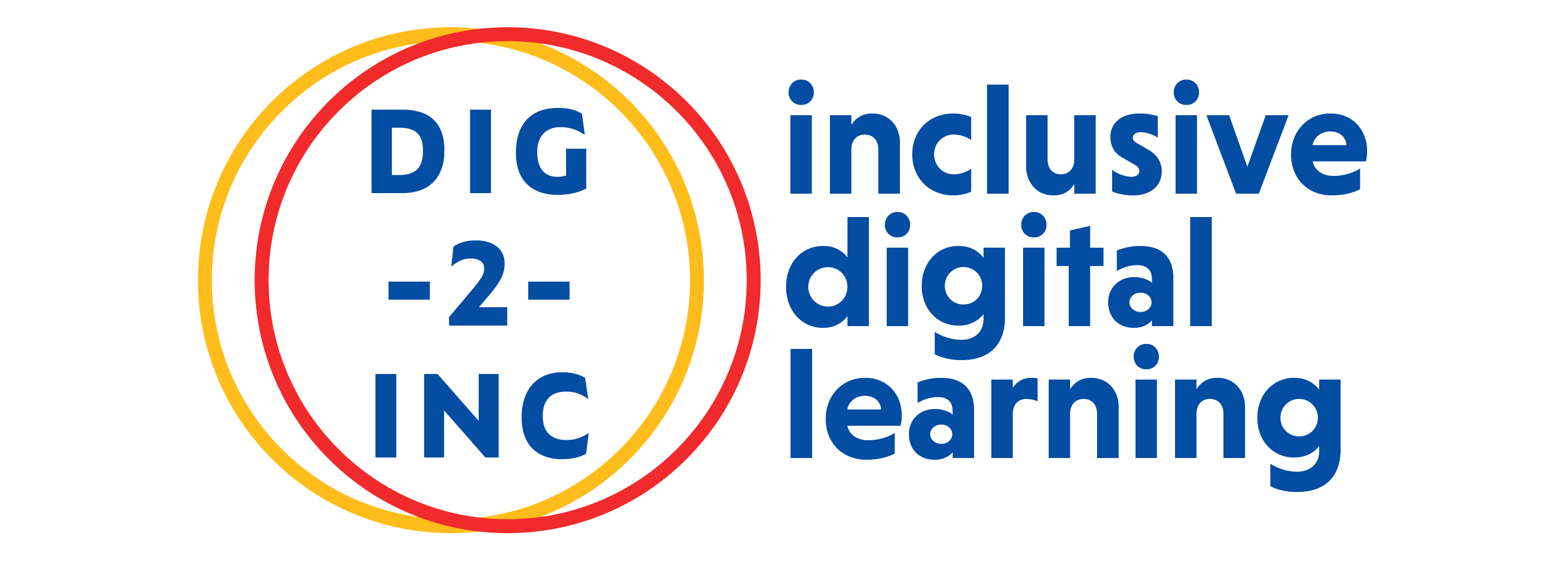Defining Competencies and Criteria for Academic Credentialing
A Comprehensive Framework for Micro-Credentials
Dig-2-Inc project’s new ‘Report of Competence Descriptions and Criteria’ focuses on defining the competencies and criteria necessary for credentialing academic skills, offering essential policies and practices for micro-credentials and open badges in line with the evolving European Union framework.
Recognizing the extensive discussions on competencies at the European level, the project partners chose to delve into the lifelong learning framework, identified as a key driver during the project’s application phase. The rapid transformation of the job market, along with the new learning models accelerated by the COVID-19 pandemic, automation, digitalization, sustainability challenges, and ongoing global crises, has led the consortium to take a broader perspective. Consequently, the report integrates key competence frameworks defined by the European Commission, including DigComp 2.2, LifeComp, EntreComp, GreenComp, and the Key Competences for Lifelong Learning.
The project partners carried out a thorough analysis of these five European frameworks to select the competencies most relevant for credentialing academic skills. This selection process was conducted via an online survey, collecting feedback from a wide range of staff members, including researchers and educators. The analysis resulted in 65 competencies, encompassing all eight key competencies for lifelong learning, as well as carefully selected competencies from the other four sector-specific frameworks. These 21 competencies were evaluated for their relevance to the academic and digital learning contexts, ensuring alignment with current educational and workforce needs.
The five most important competencies identified in the analysis are
- critical thinking,
- browsing, searching, and filtering data,
- evaluating data and digital content,
- interacting through digital technologies, and
- collaborating through digital technologies.
Critical thinking involves evaluating information to draw reasoned conclusions and develop innovative solutions. The competency of browsing, searching, and filtering digital content emphasizes the ability to articulate information needs and search effectively within digital environments while developing personal strategies for navigating and updating search techniques. Evaluating data and digital content focuses on analysing and critically assessing the credibility and reliability of sources, as well as interpreting the data to form well-grounded judgments. The competencies related to digital interaction and collaboration involve using digital technologies to communicate effectively within various contexts and leveraging these tools for collaborative processes, such as the co-creation of data and knowledge. These competencies are central to the evolving digital landscape and are essential for academic and professional development in today’s interconnected world.
A comprehensive study of the development and implementation of micro-credentials across European countries revealed a variety of approaches and challenges. The research highlights the efforts of Bulgaria, Finland, France, Germany, Italy, and Romania to integrate micro-credentials into their education systems, in line with broader European Union initiatives.
Overall, the findings emphasize a collective push to enhance lifelong learning, employability, and social inclusivity through the integration of micro-credentials, aligning with Europe’s broader commitment to lifelong learning.
- Report of Competence: Descriptions and Criteria
Project result 4.1
The Dig-2-Inc – Inclusive Digital Learning project is an Erasmus+ initiative designed to equip educators and staff members with the necessary training and design principles to better support students from low socio-economic backgrounds. The project brings together partners from Finland, Bulgaria, France, Germany, Italy, and Romania.
For more information about the Dig-2-Inc Erasmus+ project, interested parties can reach out to the researchers directly via email.

